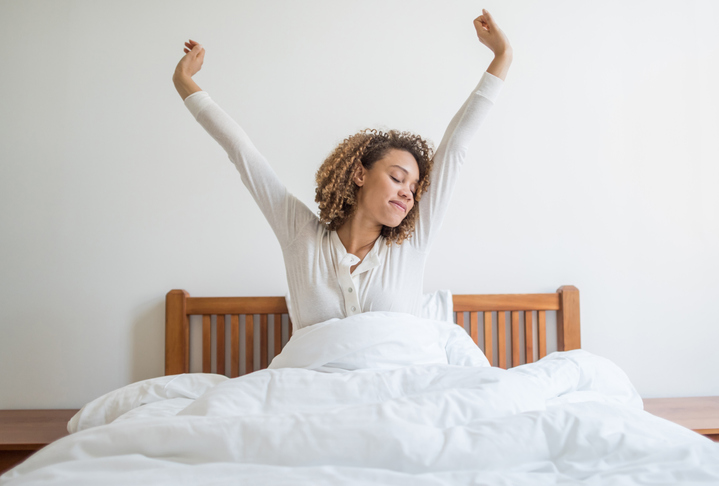A number of the benefits from exercise actually occur in the recovery time afterwards, especially when we’re sleeping. An absence of quality sleep can be detrimental to our exercise progress due to a number of factors:
- When we sleep, we recharge. Not enough sleep and we’re not adequately energized and can feel fatigued the next day, leading to poorer performance.
- Hormones are secreted while we sleep, some of which control our hunger and produce muscle growth and repair. Without them, we won’t recover as quickly and may find ourselves making unwise food choices.
- It can impair our immune system, leaving us more vulnerable to getting ill or injured.
Getting adequate sleep is vital to all aspects of our health and performance. When it comes to exercise and recovery, acclaimed sleep researcher Professor Mathew Walker described sleep as ‘probably the greatest legal performance-enhancing drug that few are abusing enough’.
When we exercise, our bodies learn to adapt. Muscles tear and repair and organs become more efficient, leaving us better equipped to perform next time. These adaptations happen primarily when we’re asleep with the release of growth hormones that aid in the recovery, healing, and growth of our muscles.
A lack of sleep has the opposite effect. Unstable blood sugar levels, high levels of stress hormones and an elevated risk of type 2 diabetes are some of the realities of chronic sleep deprivation. This means we can be regularly exercising, but if we’re not nourishing our bodies with enough sleep, we’re robbing ourselves of some of the benefits we should be enjoying.
So, if you’re starting a new exercise routine and looking to get a little fitter, remember that exercise and sleep are two sides of the same coin and we need both to improve our fitness. The recommended amount of sleep is 7-9 hours per night. Intense exercise places extra demands on the body so aim for a minimum of 8 hours sleep on days when you have been very active. Your body will thank you for it, and in return you will maximise the benefits of your exercise and get fitter sooner.
